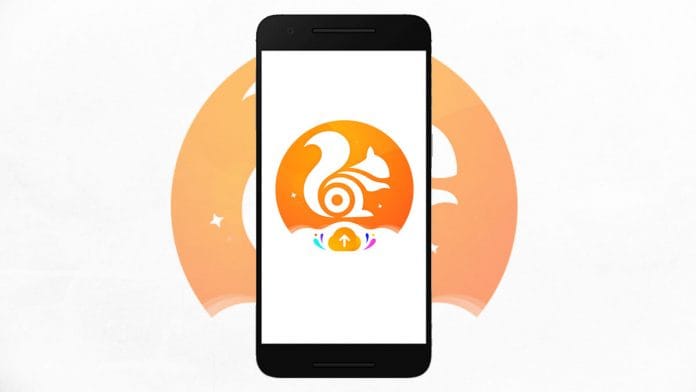New Delhi: UC Browser was India’s second most popular mobile browser before the government banned Chinese applications on 29 June.
An estimated 100 million Indians, who had the the application downloaded on their phones, now stand to lose access to the internet.
UC Browser is a Chinese mobile browser run by UC Web, a company owned by tech giant Alibaba which acquired the firm in June 2014. The company’s revenue, reported at $571 million dollars in 2017, will likely be impacted by the ban given that India is a key market for the company.
Pavel Naiya, a senior analyst with analyst firm Counterpoint Technology Market Research, said as many as 100 million smartphone users had UC browser installed on their mobile devices before the ban, according to the firm’s estimates.
The browser was more popular among users of budget phones, devices priced at Rs 10,000 or below, Naiya said.
Also read: Banning apps violates WTO rules, will affect employment of Indians: Chinese embassy
High up on popularity scale
A 2015 IANS report stated UC Browser was India’s third most-used app after Facebook and WhatsApp. “Indian users spend five million more monthly hours on UC Browser than on Chrome,” the report published in Business Standard said.
A reason for UC Browser’s success and widespread use was that it worked fast, and the browser made it easy to access content.
Marketwatch.com, citing the Wall Street Journal, said: “Users say UC Browser works better in countries dominated by low-end smartphones and spotty mobile service.”
On 29 June, when India banned 59 Chinese apps citing threats to national security and user privacy concerns, UC Browser was the most popular mobile browser after Google Chrome in India.
Data from Statcounter showed UC Browser’s market share in India was 14.46 per cent while Chrome was at 75.56 percent market share between June 2019 and June 2020. Notable here is that even before the ban, Indian users were pulling away from UC Browser. A 2016 report from Medianama states that UC Browser at the time has a 58.4 per cent market share, the highest in India, with Opera coming in second at 16.5 per cent.
Also read: Google temporarily blocks access to banned Chinese apps in India
Google takes the cake
These numbers indicate how Google Chrome has managed to rapidly grow in India. The same 2016 Medianama report said Chrome had the biggest worldwide market share with 34.2 per cent.
Yet, in India, Chrome found no mention among the top few mobile browsers. Fast forward four years, the company has managed to corner three-fourths of Indian market for mobile browsers.
Now that UC Browser has been banned, low budget smart phone users can choose from multiple alternatives. “There are many mobile browsers alternatives available, including Opera, Firefox, Chrome, Dolphin, Jio Browsers, etc,” said Naiya.
Among the Indian companies, the replacements for UC Browser include Bharat Browser, Epic Privacy Browser and Indian Browser.
Also read: China says ‘strongly concerned, verifying situation’ after India bans 59 Chinese apps
UCB’s troubles
Prior to the June ban, which also cut out apps such as TikTok, SHAREit and Shein from the Indian market, UC Browser faced allegations for cyber attacks and fake news.
In 2018, DNA reported UC Bowser was among 42 apps flagged by intelligence agencies as potentials gateways for “cyber attacks, spying and spreading fake news”.
The year before, in 2017, it was removed from the Google Play Store. A company statement reported, “… a certain setting of UC Browser is not in line with Google’s policy,” according to a Financial Express report. It linked the app’s removal to “misleading campaigns it was running, as suggested by some media reports”.
Two years prior to that, The Citizen Lab, a research lab based at University of Toronto, in 2015 found that UC Browser was leaking a “significant amount of personal and personally-identifiable data” of users. The research into UC Browser had been triggered by documents leaked by whistleblower Edward Snowden.
Also read: Shut up and put up — What Chinese companies in India should do as Galwan crisis continues







You should change the title of this article. TikTok and others will be replaced by Indian apps in less than 6 months. Why not promote articles that show the serious security issues with Chinese apps (there is overwhelming evidence amongst intelligence agencies worldwide) and also showcase stories of how Indians are quickly switching to other apps such Roposo, Chinhari, MOJ, JioMeet, Whatsapp, Google Chrome, JioBrowser, Instagram, Youtube, etc. The problem in India is that even while being threatened by a communist superpower we are still unable to stand united and stand with the PM. China is counting on us to stand divided so that we internally implode. After the threat has subsided, perhaps we can go back to fighting each other and pulling each other down like frogs in a well. Perhaps Churchill was right. There is no hope for India.